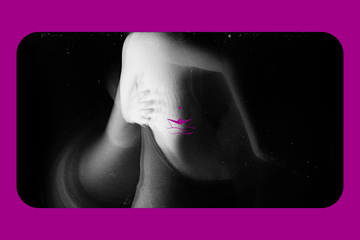Understanding Eroticism
Eroticism is much broader, more liberating, and more integrated into life than the sexual act it evokes in our minds. To understand and, more importantly, to live eroticism, we must first look at the etymological root of the word, Eros, and then at the concept of connection.
At its core, eroticism is love for life. "Eros is not only the god of love or sex, but according to this belief, he is also the symbol of the ongoing creative process of reproduction." (1) Wikipedia writes, showing us that Eros is subject to a continuous process of creation and reproduction. However, this reproduction should not only be thought of in terms of sexuality because we have developed enough to understand that creating can be an act that serves the world. In this sense, Eros is immortal; he constantly gives birth to life and creates relationships. We, who fear the pain of Eros' arrow, close ourselves off and avoid forming real connections. We communicate as if we are open but take no risks. We think about abandonment before the relationship even begins.
Yet, one of the most fundamental human needs is to form a real connection. By experiencing this connection in various forms and dynamics, we grow, learn, evolve, and inevitably transform. "The meeting of two personalities is like the contact of two chemical substances: if there is any reaction, both are transformed." (2) Carl Gustav Jung says. This is precisely where eroticism serves humanity—through its transformative power.
In an archaic sense, humanity’s sole and fundamental goal was to continue its species—reproduction. However, as sapiens evolved into a cognitive organism and societal structures required more complexity, our priorities shifted. Many biologists still argue that we base our choices on this "instinct to reproduce." But we can imagine that in this primitive, monotonous view, Eros has little place. Eros steps onto the stage when sexuality is separated from reproduction and becomes a way of forming a relationship in its own right; but this doesn’t mean that Eros is necessarily present wherever sexuality exists.
Today, we are well aware of the large-scale impact of both sexual addiction and the repression of sexuality. Many people have begun learning about sexuality through the lens of the pornography industry, thanks to the easy accessibility of the digital world, and this has come at a high cost to eroticism. "The obscene element of pornography does not come from an excess of sex, but from the fact that it contains no sex at all. Today, sexuality is threatened not by the pure mind, which avoids sex as something dirty in its pleasure-hostile attitude, but by pornography." (3) writes Byung-Chul Han in his book The Agony of Eros and adds: "Pornography desecrates the sacredness of eroticism." (4)
The pornography industry, which makes a huge contribution to the capitalist economy, confines sexuality to a narrow, restricted perception and imposes this on viewers, forcing them into consumption instead of true connection. Consuming the gaze... "Primarily, sexuality is not something to be watched or exhibited; it is something to participate in, to create, to be in." (5) Osho says. You just are, and you connect. Sexuality is not a performance but an act of creation in itself. It is being.
Eroticism is a consciousness that involves the emotional self, supporting the idea of sustaining life not by possessing another, but by adjusting the distance between yourself and them. Every moment we activate our senses and celebrate life, we salute Eros and become more "human." In fact, I am not a "thing" by myself. The "thing" happens between me and the other and requires constant motion. Existence is the space between us.
Given all this, we can say that pornographic culture is the death of true sexuality and connection. It serves the interests of the "higher mind" to hunt and control us by exploiting our most archaic weaknesses. No doubt, eroticism is a political stance that stands in alliance with love, life, and creativity, in opposition to the madness of possession that comes from being trapped in the illusion of the world. It is a soft and active alternative to death, stillness, stagnation, effort, and consumption.
When we understand and liberate eroticism, we will see how the rigidity that weighs us down dissolves and lightens us. For this, we need beauty, and for beauty, we need our senses. In its most practical application, eroticism is the act of sensing the moment. It is knowing where you touch, feeling the wind touch you, remembering that every moment you share the same air with others and that your lungs are constantly in contact. It’s remembering that the earth beneath your feet is there and that the only thing you have to do in the infinite space-time void is to live.
Instead of retreating within yourself,
if you connected with the world, with another,
invited Eros, and dared to endure the pain of his arrow,
if you remembered Life,
How different would today be?


